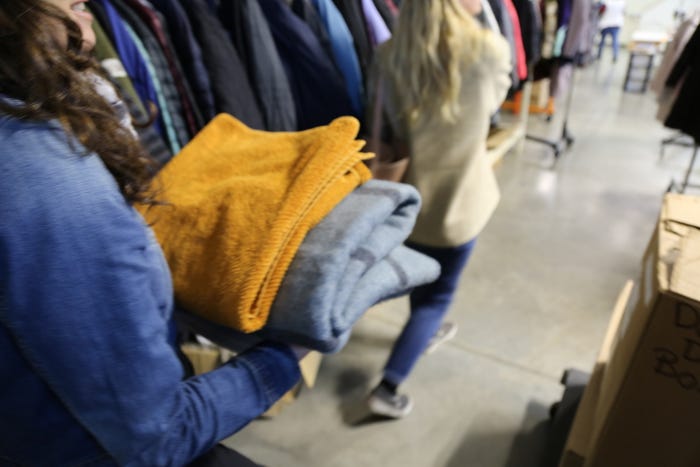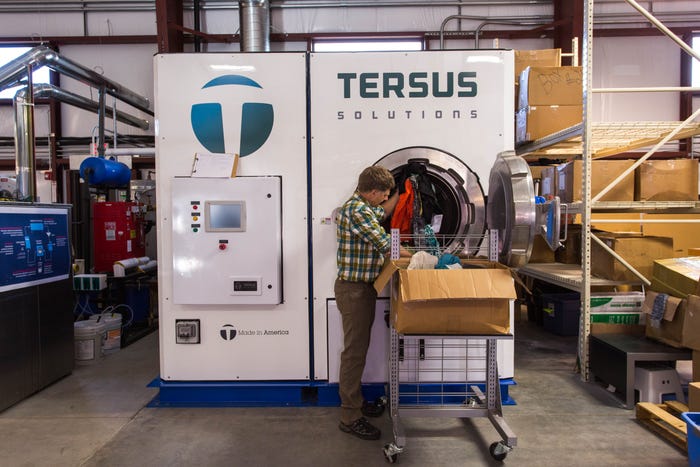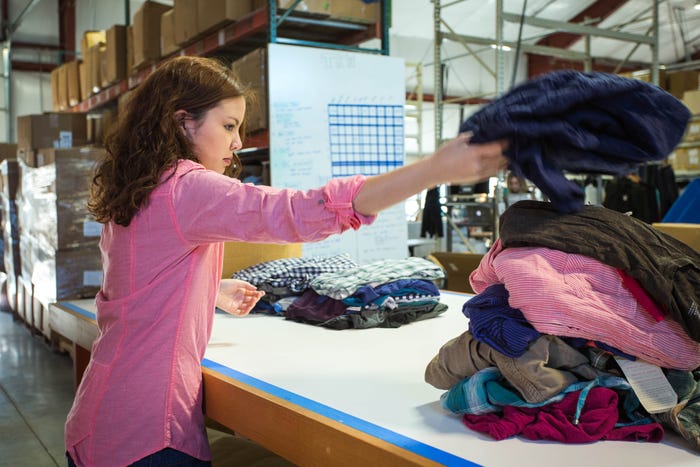Coyuchi for Life Closes the Loop for Home Textiles
The home textile brand Coyuchi has created a closed loop system that allows subscribers to buy into Coyuchi’s efforts to renew and recycle linens.

Ten million tons of textile waste ends up in landfills each year, and some textiles contain harmful chemicals in dyes and finishing agents that can be toxic. With the goal of keeping its products out of the landfill, the home textile brand Coyuchi has created a closed loop system that allows subscribers to buy into Coyuchi’s efforts to renew and recycle linens.
“We wanted to create an end-of-life solution that worked for our own products, and then we discovered that there is this growing issue in landfills, just in the U.S. alone, where there is too much textile product that is being disposed of each year,” says Eileen Mockus, president and CEO of Coyuchi.
Through the Coyuchi for Life subscription service, which launched in 2017, customers receive new organic cotton towels, sheets and duvets and return these products to the company to receive another new set. Customers can choose between 6-, 12- or 24-month subscriptions with the assurance that their returned linens will bypass the landfill.
Coyuchi was founded more than 25 years ago with a focus on pioneering the use of organic cotton in home textiles. Coyuchi uses minimally processed fibers and adheres to the Global Organic Textile (GOT) and Fair Trade USA standards. Through its partnership with The Renewal Workshop, Coyuchi can extend the life of its products by renewing, reselling or recycling both linens collected through the subscription service and defective or otherwise returned products.

The Renewal Workshop, which launched two years ago in the Portland, Ore., area was created to enable a circular economy for the apparel industry, according to The Renewal Workshop Co-founder Jeff Denby.
When Coyuchi’s towels and sheets are sent to The Renewal Workshop, they are first cleaned. The Renewal Workshop uses a liquid CO2 machine, of which there are about six in the world, which can clean 50 pounds of clothes at a time. At the point of compression, CO2 turns from gas into a liquid. The Renewal Workshop uses a specially developed detergent that works with liquid CO2 in a similar fashion as detergent in a water washing cycle. Once the pressure releases and the CO2 turns back into a gas, the clothing is clean and dry. Neither water nor heat is used during the cleaning process, as they can both damage textiles, Denby notes.
“CO2 is an incredible cleaning agent. It takes out mold, smoke, smell, body oil—anything,” says Denby. “The fact that we are using this really advanced cleaning technology should give customers a strong sense of trust in the process.”

The Renewal Workshop tracks the environmental impact created by renewing and recycling products, looking at measures such as waste diversion, the amount of water saved by extending the life of the product and the amount of carbon and toxic chemicals that are saved from going into the landfill. Last year, through its many partnerships, The Renewal Workshop diverted 45,000 pounds of apparel from the landfill, says Denby.
Coyuchi sells the renewed product in some of its store locations. For other clients, The Renewal Workshop offers the option of selling the renewed products on the workshop’s website.
Since Coyuchi for Life is a relatively new program, not enough product has been collected yet to warrant recycling. Recycling solutions might include turning the products into yarn to be used for making new products. By exploring recycling options now, Coyuchi plans to be at the forefront of the movement as the textile recycling industry grows and continues to find revolutionary ways of reusing textiles. Coyuchi is also looking at upcycling opportunities.

In its first year, Coyuchi for Life is connecting with customers who appreciate the model. “It has been surprisingly easy to convey that it is a circular concept,” says Mockus. “There are also a lot of people who want the service side of it. They want new towels every year, and they can get them in an affordable way. There’s no guilt associated with it because there is something that is going to happen to that towel afterward, instead of it just being thrown out.”
Coyuchi plans to expand the Coyuchi for Life program to include a wider selection of its home textile products in the future.
About the Author
You May Also Like


